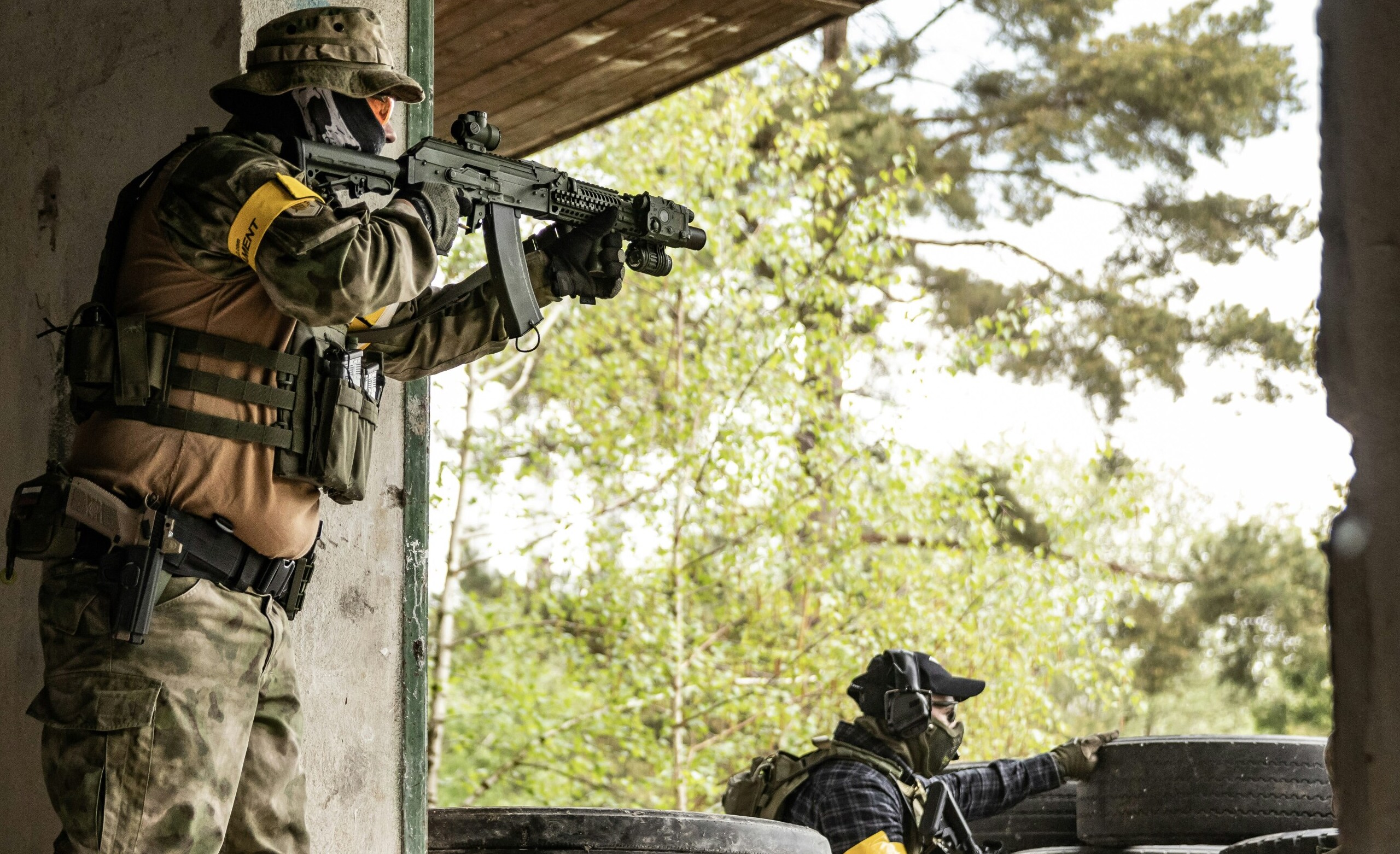
How To Survive A Civil War
Let’s dive into how to survive a civil war together. Welcome to a guide on surviving one of the most challenging and chaotic situations a person can face: a civil war. In times of unrest and uncertainty, being prepared and informed can make all the difference between life and death.
Whether you’re in an area experiencing conflict or just want to be ready for any scenario, this article will provide practical tips on how to navigate through turbulent times with resilience and courage.
Understanding Civil Wars
Civil wars are complex conflicts that tear apart the fabric of society. They often stem from deep-rooted political, social, or economic grievances that escalate into violent confrontations. Understanding the dynamics of civil wars is crucial to navigating through such turbulent times.
These conflicts can be fueled by ethnic tensions, religious differences, or power struggles within a country. The lines between friend and foe become blurred as communities are torn apart by conflicting loyalties and ideologies.
Civil wars bring about immense human suffering, with civilians bearing the brunt of the violence. Displacement, loss of livelihoods, and psychological trauma become common experiences for those caught in the crossfire.
As outsiders looking in, it may be challenging to grasp the complexities of a civil war without firsthand experience. However, educating oneself on historical precedents and root causes can shed light on why these conflicts erupt and persist over time.
Preparing for a Civil War
Understanding the potential for a civil war is crucial in preparing for one. It’s important to stay informed about the political and social climate of your region to anticipate any signs of escalating tensions. Keep an eye on local news sources and be aware of any divisive issues that could spark conflict.
Stocking up on essential supplies is key in case of a civil war breaking out suddenly. Make sure to have enough non-perishable food, water, medications, and other necessities to last you and your family for an extended period. Don’t forget about basic hygiene items, first aid supplies, and tools for self-defense.
Creating an emergency plan with your loved ones can help ensure everyone knows what to do in case of an emergency. Designate meeting points, establish communication channels, and practice drills regularly so that everyone is prepared to act swiftly if needed.
Mental and emotional preparation is just as important as physical readiness when it comes to surviving a civil war. Seek support from friends or professionals if you’re feeling overwhelmed or anxious about the situation. Prioritize self-care activities like exercise, meditation, or hobbies that bring you comfort during stressful times.
Stocking Up on Supplies
Stocking up on supplies is crucial when preparing for a civil war. You never know how long you may need to rely on your own resources, so it’s essential to have enough food, water, and other necessities to last an extended period of time. Consider stocking up on non-perishable items like canned goods, dried foods, and emergency rations that have a long shelf life.
In addition to food and water, don’t forget about basic medical supplies such as first aid kits, medications, and hygiene products. Having these essentials on hand can make a significant difference in ensuring your well-being during uncertain times.
It’s also wise to stock up on important documents like identification papers, insurance policies, and contact information for loved ones. Keep these items in a secure location that you can easily access if needed.
Consider investing in tools and equipment that can help you stay safe and self-sufficient during a civil war. Items like flashlights, batteries, portable stoves or cooking devices are invaluable assets to have in your survival kit.
Creating an Emergency Plan
Creating an emergency plan is essential when preparing for a civil war. Start by identifying safe locations in your area where you can seek shelter if needed. Consider factors like proximity to resources and potential exit routes.
Establish communication protocols with your loved ones to stay connected during chaotic times. Set up designated meeting points in case you get separated and cannot rely on technology.
Prepare a go-bag with essentials like food, water, first aid supplies, important documents, and cash. Keep it easily accessible in case you need to evacuate quickly.
Practice drills with your family members or roommates so everyone knows what to do in different scenarios. Assign roles and responsibilities to ensure a smooth execution of your emergency plan.
Stay informed about local news and developments that could impact your safety. Adapt your plan as needed based on changing circumstances. Being proactive can make all the difference when faced with uncertainty during a civil war.
Mental and Emotional Preparation
During a civil war, mental and emotional preparation is just as crucial as physical readiness. The uncertainty and stress can take a toll on your well-being, so it’s essential to prioritize your mental health. Find ways to cope with the anxiety and fear that may arise during this turbulent time. Whether it’s through meditation, journaling, or talking to loved ones, make self-care a priority.
Stay informed but limit exposure to distressing news or images that can exacerbate feelings of helplessness. Focus on what you can control in your immediate surroundings. Reach out for support from friends, family, or mental health professionals if needed – you don’t have to navigate these emotions alone.
Additionally, practicing mindfulness and staying present in the moment can help ground you amidst chaos. Remember to be kind to yourself and acknowledge that it’s okay not to feel okay all the time during such challenging circumstances. Mental fortitude is key in navigating the emotional rollercoaster of surviving a civil war.
Staying Safe During a Civil War
When navigating the chaos of a civil war, staying safe becomes paramount. Avoid unnecessary risks by staying informed about the current situation. Stay connected with reliable news sources to understand where conflicts are occurring and how to steer clear of danger zones.
Maintain a low profile and avoid drawing attention to yourself. Dress inconspicuously and be cautious about sharing personal information. Keep a close circle of trusted individuals who can provide support during uncertain times.
Create a communication plan with your loved ones in case you get separated. Establish meeting points or emergency signals to stay connected even when technology fails. Develop escape routes and safe havens in advance to ensure swift action if needed.
Stay vigilant and trust your instincts when it comes to safety decisions. Be prepared to adapt quickly as situations evolve. Prioritize your well-being above all else as you navigate through turbulent times.
Rebuilding After the War
Rebuilding after a civil war is not just about physical reconstruction, but also about healing the wounds that linger in people’s hearts and minds. Communities shattered by conflict must come together to mend what was broken and forge a path towards reconciliation.
It takes time to rebuild trust among former enemies and foster a sense of unity among diverse groups. This process involves listening to each other’s stories, acknowledging past grievances, and working towards forgiveness.
Economic revival is crucial for post-war recovery. Creating job opportunities, restoring infrastructure, and attracting investments are essential steps in rebuilding a war-torn society. International aid and cooperation play a vital role in supporting these efforts.
Education plays a key role in shaping the future of countries ravaged by conflict. Investing in schools, promoting tolerance and understanding diversity can help prevent future conflicts from arising.
Rebuilding after a civil war requires resilience, compassion, and unwavering commitment to creating a better tomorrow for all those affected by the horrors of war.
Conclusion
Civil wars are devastating conflicts that can have long-lasting effects on individuals and communities. By understanding the nature of civil wars, preparing for potential scenarios, and taking steps to ensure safety and well-being, you can increase your chances of survival during such tumultuous times.
Remember to stock up on essential supplies, create an emergency plan with your loved ones, mentally and emotionally prepare yourself for the challenges ahead, and prioritize your safety above all else. In the aftermath of a civil war, focus on rebuilding your life and community while healing from the trauma experienced.
By staying informed, proactive, and resilient in the face of adversity, you can navigate through a civil war with greater resilience. While surviving a civil war is undoubtedly challenging, with careful planning and preparation, it is possible to emerge stronger on the other side. Stay safe and be prepared – your survival may depend on it.



